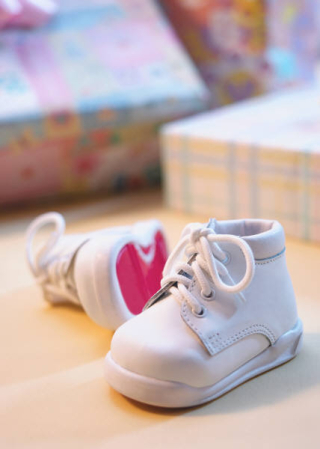 The last thing most new parents are thinking about is taxes, but the addition of a new baby to your family has some nice tax perks, according to "The Most-Overlooked Tax Breaks for New Parents" from Kiplinger's. First step: make sure your new addition has a Social Security number.
The last thing most new parents are thinking about is taxes, but the addition of a new baby to your family has some nice tax perks, according to "The Most-Overlooked Tax Breaks for New Parents" from Kiplinger's. First step: make sure your new addition has a Social Security number.
You'll need an SSN to claim your new baby as a dependent on your tax return. If you don't report the number, it can mean a $50 fine and tie up your refund. Request a Social Security number for your newborn at the hospital when you apply for a birth certificate.
Dependency Exemption. Claiming your son or daughter as a dependent will shelter $4,000 of your income from taxes in 2015, which will save you $1,000 if you are in the 25% bracket. You will receive the full year's exemption, no matter when the child was born or adopted during the year.
Child Tax Credit. A new baby also gets you a $1,000 child tax credit every year until your dependent son or daughter turns 17, no matter when the child was born during the year. Unlike an exemption that reduces the amount of income the government gets to tax, a credit reduces your tax bill dollar for dollar. So, the $1,000 child credit will reduce your tax bill by $1,000.
Increase Your Take-Home Pay. When you claim another dependent, you will cut your tax bill. So decrease your tax withholding from your paychecks with a new W-4 form.
Head of Household Filing Status. If you're single, having a child may allow you to file as a head of household rather than as a single, which enables you to get a bigger standard deduction and more advantageous tax brackets. To qualify as a head of household, you must pay more than half the cost of providing a home for a qualifying person like your new child.
Earned Income Credit. Having a child pushes the cutoff to claim this credit which offsets federal payroll and income taxes for low- and moderate-income workers to $44,650 for 2015 returns. The income cutoff is higher if you have two or more children.
Child-Care Credit. If you pay for child care to allow you to work, and that income is taxed, you can earn a credit if you're paying for the care of children under 13. The size of your credit depends on how much you pay for care and your income.
Kid IRAs. Once a child is working, whether from a job or from being self-employed, he or she can open an IRA. Babysitting money or newspaper delivery money can be added to an IRA. By starting early, the opportunity to grow their IRA over time gives their retirement an additional boost. Parents and grandparents can give the child money for the IRA; however, contributions are limited to $5,500 a year or 100% of the child's earnings—whichever is less. It's often overlooked, but this is a nice way to get your child into the habit of saving for the future.
Reference: Kiplinger (February 2016) "The Most-Overlooked Tax Breaks for New Parents"
 Houston Estate Planning and Elder Law Attorney Blog
Houston Estate Planning and Elder Law Attorney Blog

